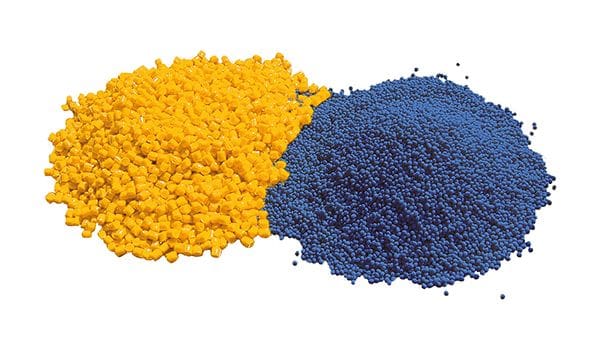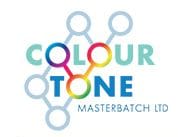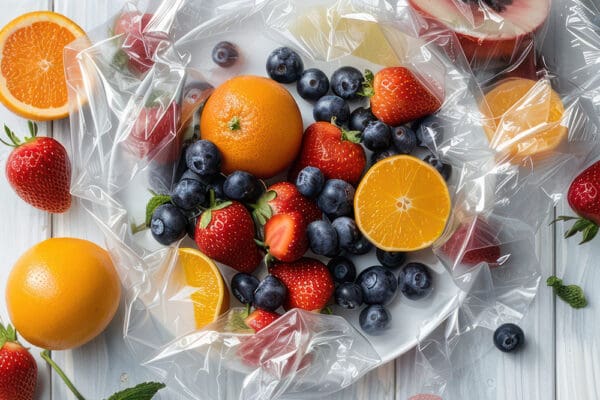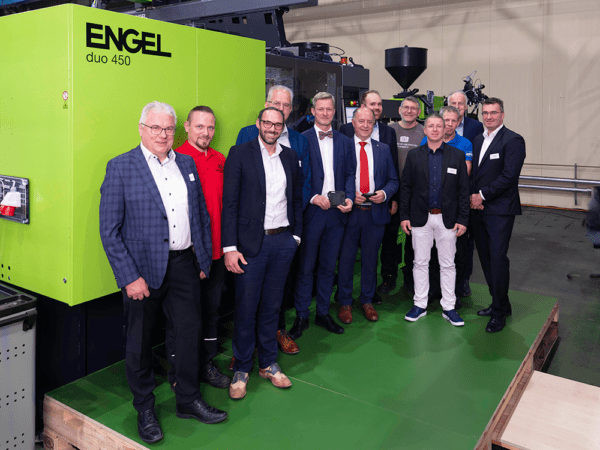
New Patent Granted to Vynacol® Colouring System for PVCu
Specialist additive and masterbatch manufacturer Colour Tone has been granted a new patent for formulation improvements made to the market’s only PVCu polymer specific colouring system, Vynacol®.
The patent covers the refinements made to the formulation technology for this innovative masterbatch supporting both granular and the more recent prill format favoured by dry-blend processors.
The Vynacol® colouring system was originally developed to solve historic compatibility and processing problems found when adding colour concentrates to PVCu by employing innovative technology. Processors also benefited from reduced stock of coloured compounds, less cost and greater production flexibility by self-colouring.
By adopting Vynacol processors will benefit from the following:
- Makes rigid and flexible PVC as easy to colour as any other polymer
- Is suitable for injection moulding, extrusion and blow moulding
- Provides brilliant, vibrant colours, special effects and a superior finish
- Can be formulated to meet international standards for food, toy, packaging, automotive and electrical products
Tony Gaukroger, director, Colour Tone, explains: “Since Vynacol’s launch in 2000, advances have been made in raw materials and demand for smaller granules also emerged. In response we developed the prill format that meant changes to our formulation technology to support the different processing required.
“This improved masterbatch is available in both formats for ease of mixing and homogenisation. It also offers significantly improved melt rheology control for consistent processing of more highly loaded formulations, which together ensures a high quality PVCu product.”
Prior to Vynacol, colour was added to PVCu by using liquid colours, wax dispersions, universal and flexible PVC based masterbatches. All these systems introduced additives into the PVCu often presenting processing difficulties that could lead to application failures – typically plasticiser migration, lamination, plate out or changes in the physical properties of the product.
Universal masterbatches never worked consistently therefore, since rigid PVCu is a complex material that is highly sensitive to additives. Processors were forced to find just the right grade for their particular process, plant and application.
There are literally thousands of PVC formulations on the market as result, with varying amounts of additives and levels of compounding, all developed to meet specific performance and processing requirements.
Any of which may be affected by the colouring method selected, for example, a universal masterbatch or a wax-based dispersion may be unsuitable in a PVCu because its carrier over lubricates the compound so affecting the PVCu’s suitability for purpose.
While Vynacol has consistently performed well in both rigid and flexible grades to deliver an unblemished finish with limitless colour opportunities. It can also be customised to feature functional additives that include: heat reflecting infrared pigments, UV protection and antistatic qualities.
Today, Vynacol is used to colour PVCu materials in numerous products including: profile extrusions, rainwater goods, roofline mouldings, glazing components, cleaning fluid bottles and sheet used for food packaging.
Its continued success has enabled Colour Tone Masterbatch to open up new markets in Europe, North America and even the Pacific Rim.
Colour Tone Masterbatch
+44 (0) 2920 888910
Website
Email






